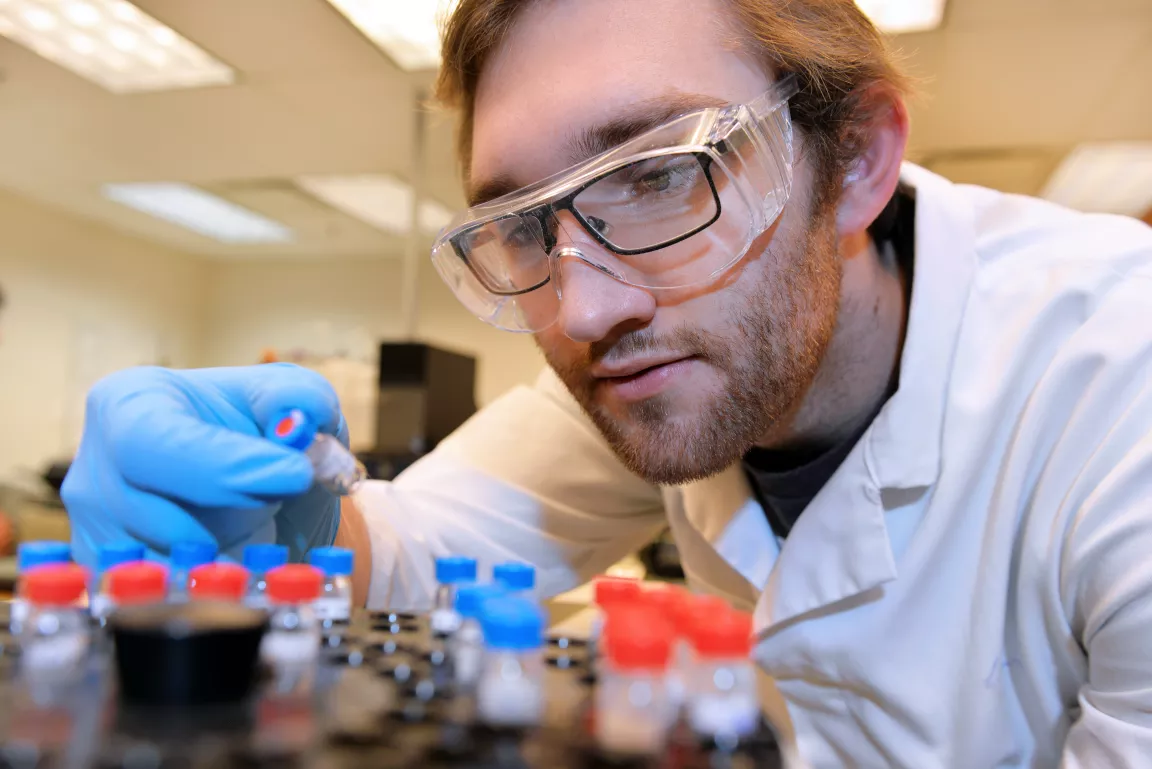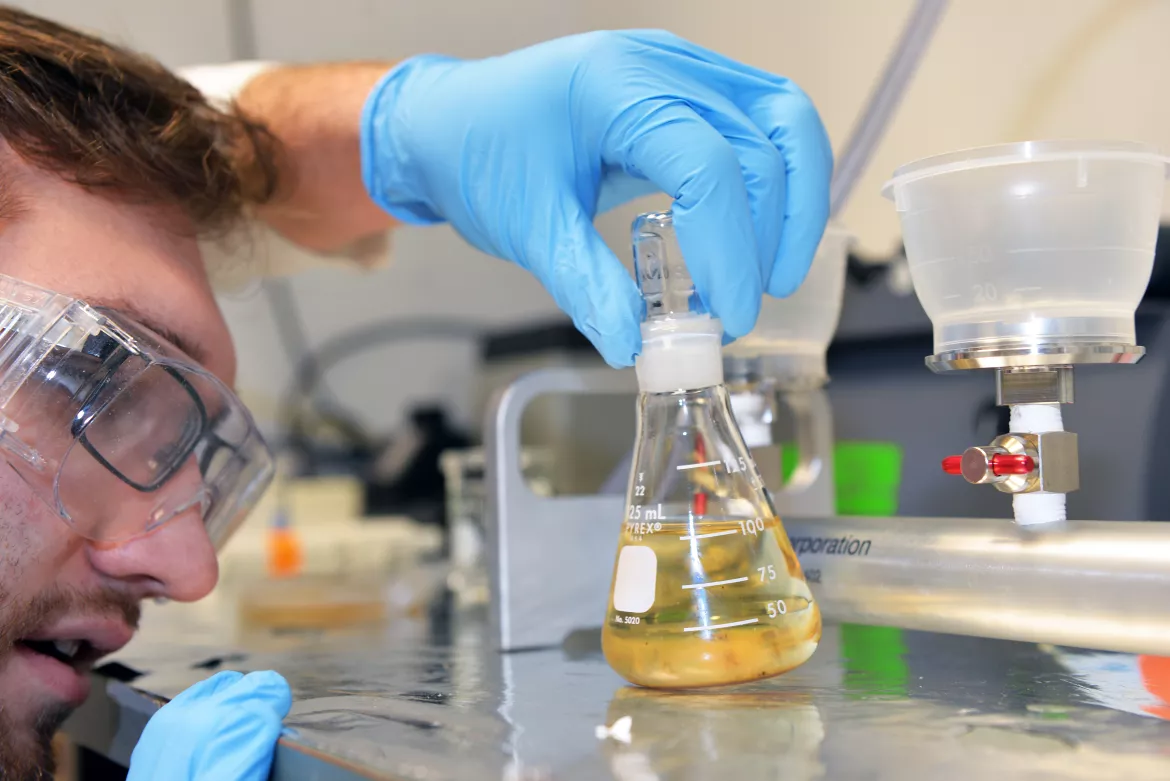Research indicates Magic Mineral can kill bacteria in contaminated water

Natural zeolites are a class of aluminosilicate minerals with a three dimensional and open framework structure consisting of pores and cavities. Ion-exchange, adsorption, dehydration–rehydration and catalysis are among attractive properties of zeolites.
Since natural zeolite deposits were discovered around the world more than six decades ago, they now have many applications for use in agriculture and horticulture, animal husbandry, aquaculture, chemical, biological and environmental processes.
Zeolites are used as animal feed-additives, as soil-amender in agriculture, as adsorbents for pet litter, barns, refrigerators and athletic footwear and as bactericides, insecticides and antacids for humans and animals. Zeolite can also adsorb toxins from nuclear waste. Because of the wide range of their applications, they are commonly known as the Magic Rock or the Magic Mineral.

Lon Kerr, a graduate student at the University of Northern British Columbia is looking at a different way a modified form of the mineral can be used for killing bacteria in contaminated water.
Based at the Northern Analytical Laboratory Services (NALS) at UNBC, Kerr’s research involves modifying natural zeolites to make anti-bacterial agents.
A natural zeolite sample from the International Zeolite’s Bromley Creek Quarry in British Columbia was first washed with deionized water, then treated with sodium chloride solution to remove water-soluble impurities and to make a sodium-form zeolite. Then, the purified sodium-form sample was soaked in zinc solution to load the zeolite.
The bacteriological tests confirmed that zinc-modified zeolite is capable of killing 100 per cent of bacteria. Just 0.1 grams of product can reduce the cell count of bacteria-contaminated water by over two thousand per hundred milliliters, in under an hour of exposure. Continued efforts are underway to upscale the process.
“According to World Health Organization (WHO) reports, by 2025, 50 per cent of the world’s population will be living in water-stressed regions and at least two billion people will be drinking water from sources contaminated with bacteria generated by feces,” says Kerr. “These numbers show the importance of our research in developing inexpensive, yet a very effective compound for water purification particularly for underdeveloped countries. In some cases, floods, earthquakes and other events can damage or destroy existing water treatment systems in developed communities. Zeolites are a solution for disaster that can be prepared in advanced and stored long term.”
Kerr is in the second year of his Master’s degree in Master of Science in Natural Resources and Environmental Studies (environmental science). His research began while he was an undergraduate student in UNBC.
“We’ve been testing killing bacteria in drinking water since last summer, we are confident about the results we are getting,” said Dr. Hossein Kazemian, Kerr’s supervisor.
Kerr is conducting his research with International Zeolite Corporation (formerly known as Canadian Zeolite Corporation) thanks to funding from Mitacs, which is a not-for-profit organization that fosters growth and innovation in Canada for business and academia.